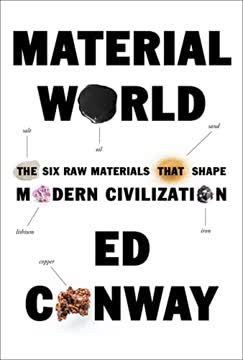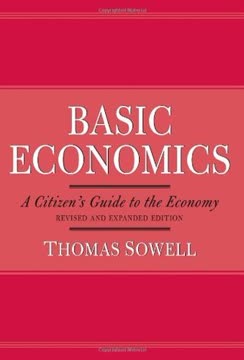Key Takeaways
1. Negotiation is a universal skill for getting what you want
Negotiation is a field of knowledge and endeavor that focuses on gaining the favor of people from whom we want things.
Negotiation is everywhere. From personal relationships to professional settings, negotiation is a constant in our lives. It's not just about big business deals or diplomatic relations; it's about getting what you want in everyday situations. Whether you're asking for a raise, deciding on a family vacation, or resolving a conflict with a neighbor, you're negotiating.
Skills can be developed. Negotiation is not an innate talent but a learnable skill. By understanding the principles and practicing techniques, anyone can become a better negotiator. This involves:
- Identifying your goals and the other party's needs
- Communicating effectively
- Finding creative solutions that benefit both parties
- Managing emotions and relationships
Mindset matters. Approaching situations with a negotiation mindset can lead to better outcomes. Instead of viewing conflicts as win-lose scenarios, see them as opportunities to create value for all parties involved.
2. Power, time, and information are crucial variables in negotiation
Information, time pressures, and perceived power often spell the difference between satisfaction and frustration for you.
Information is power. The more you know about the other party's needs, constraints, and alternatives, the better positioned you are to negotiate. This includes:
- Understanding their motivations and priorities
- Knowing market rates and industry standards
- Being aware of external factors that might influence the negotiation
Time management is critical. Deadlines and time pressure can work for or against you. Understanding how to use time strategically can give you an advantage:
- Don't rush into agreements without proper preparation
- Be patient and willing to extend negotiations if necessary
- Use deadlines to create urgency when it benefits you
Power dynamics influence outcomes. Recognizing and leveraging different sources of power can shift the balance in your favor:
- Expertise or specialized knowledge
- Alternatives or walk-away options
- Relationships and reputation
- Legitimacy or formal authority
3. Perception of power is more important than actual power
If you think you've got it, then you've got it. If you think you don't have it, even if you have it, then you don't have it.
Confidence is key. Your belief in your own power and ability to negotiate effectively can significantly impact the outcome. This self-assurance can:
- Influence how others perceive and respond to you
- Give you the courage to ask for what you want
- Help you remain calm under pressure
Identify your sources of power. Even if you don't have formal authority, you likely have other forms of power:
- Knowledge or expertise
- Relationships or networks
- Alternatives or options
- Personal qualities like persistence or creativity
Project power through behavior. Your actions and demeanor can convey power:
- Speak with conviction
- Maintain composure
- Be prepared and well-informed
- Use confident body language
4. Collaborative negotiation leads to mutually beneficial outcomes
Successful collaborative negotiation lies in finding out what the other side really wants and showing them a way to get it, while you get what you want.
Focus on interests, not positions. Instead of getting stuck on specific demands, explore the underlying needs and motivations of both parties. This approach:
- Opens up more possibilities for agreement
- Helps find creative solutions that satisfy everyone
- Builds stronger relationships for future interactions
Create value, don't just distribute it. Look for ways to expand the pie before dividing it:
- Identify shared interests
- Explore different options
- Bundle issues to create trade-offs
Aim for win-win outcomes. Collaborative negotiation is not about compromise, but finding solutions that truly benefit both parties:
- Be open to unconventional solutions
- Consider long-term relationships, not just short-term gains
- Celebrate mutual success
5. Build trust and gain commitment for successful negotiations
Once trust exists it tends to endure. You may have observed that many people fall out of love; yet rarely does anyone fall out of like.
Establish rapport early. Building a connection with the other party lays the groundwork for trust:
- Find common ground
- Show genuine interest in their perspective
- Be reliable and consistent in your interactions
Communicate openly and honestly. Transparency builds trust:
- Share relevant information
- Explain your reasoning and motivations
- Address concerns and misunderstandings promptly
Follow through on commitments. Your actions speak louder than words:
- Do what you say you'll do
- Be punctual and prepared
- Admit mistakes and take responsibility
Gain commitment from key stakeholders. Recognize that decisions often involve multiple parties:
- Identify and engage influential individuals
- Address concerns of all stakeholders
- Build a coalition of support for your proposal
6. Recognize and manage different types of opponents
A visceral opponent is an emotional adversary, who not only disagrees with your point of view, but disagrees with you as a human being.
Distinguish between idea opponents and visceral opponents. Understanding the nature of your opposition helps you choose the right approach:
- Idea opponents: Disagree on specific issues or proposals
- Visceral opponents: Have personal or emotional conflicts with you
Strategies for idea opponents:
- Focus on interests and common ground
- Use objective criteria and data
- Explore creative solutions together
Handling visceral opponents:
- Address emotional issues separately from substantive ones
- Avoid personal attacks or defensive reactions
- Consider using a mediator or third party
Prevent creating visceral opponents:
- Respect others' dignity and "face"
- Avoid public humiliation or embarrassment
- Separate the person from the problem
7. Use the telephone and written agreements strategically
After you've finished an important telephone transaction, carefully compose this written representation of the negotiated understanding.
Telephone negotiation tips:
- Be the caller, not the callee, to maintain control
- Prepare thoroughly before the call
- Listen actively and use silence strategically
- Have a graceful exit strategy
Importance of written agreements:
- Clarify and confirm understandings
- Prevent future misinterpretations
- Serve as a reference for both parties
Writing effective memos of agreement:
- Be clear and concise
- Include all key points discussed
- Use neutral language
- Have both parties review and sign
Benefits of being the scribe:
- Control the narrative and framing
- Include details important to you
- Set the tone for future interactions
8. Move up the hierarchy to resolve conflicts effectively
Every organization is a hierarchy. Steadily go up the ladder, rung by rung, until you get satisfaction.
Start at the appropriate level. Begin with the person directly responsible, but be prepared to escalate if necessary:
- Give the initial contact a chance to resolve the issue
- Document your attempts to resolve at lower levels
- Remain professional and courteous throughout
Understand authority levels. Different levels of an organization have different decision-making powers:
- Lower-level employees often have limited authority
- Mid-level managers may have more flexibility
- Top executives can often make exceptions to policies
Escalation strategies:
- Clearly explain the issue and desired outcome
- Provide relevant documentation and history
- Appeal to the organization's values or reputation
- Be persistent but respectful
Know when to stop. Recognize when you've reached the highest appropriate level:
- Consider the cost-benefit of further escalation
- Be prepared to accept a final decision
- Explore alternative solutions or providers if necessary
Last updated:
FAQ
1. What is "You Can Negotiate Anything" by Herb Cohen about?
- Negotiation as a universal skill: The book presents negotiation as a fundamental life skill, not just a business tactic, emphasizing its role in everyday interactions from family to professional settings.
- Web of tension concept: Cohen defines negotiation as the use of information and power to influence behavior within a "web of tension," highlighting its psychological and strategic dimensions.
- Practical, accessible guidance: The book is designed for laypeople, offering actionable advice and real-life examples rather than academic theory.
- Broad applicability: Cohen demonstrates that negotiation is relevant in all areas of life, from buying goods to resolving conflicts and navigating bureaucracy.
2. Why should I read "You Can Negotiate Anything" by Herb Cohen?
- Empowerment through negotiation: The book shows how mastering negotiation can increase your influence over your environment and improve life outcomes.
- Universal relevance: Cohen’s strategies apply to personal, professional, and even bureaucratic situations, making the book valuable for everyone.
- Confidence and skill-building: Readers learn to recognize negotiation opportunities, counter manipulative tactics, and approach situations with greater confidence.
- Insight into power dynamics: The book explains how perception, time, and information shape negotiations, helping readers harness these variables for better results.
3. What are the key takeaways from "You Can Negotiate Anything" by Herb Cohen?
- Everything is negotiable: Cohen challenges the myth of fixed prices and rules, encouraging readers to question assumptions and test boundaries.
- Three crucial variables: Power, time, and information are the pillars of effective negotiation, and understanding them is essential for success.
- Styles and tactics matter: Recognizing both competitive and collaborative negotiation styles helps you adapt and avoid being manipulated.
- Trust and personalization: Building trust and humanizing yourself in negotiations leads to more creative, mutually satisfying outcomes.
4. What are the three crucial variables in negotiation according to Herb Cohen?
- Power: Defined as the capacity to get things done, power is neutral and based on perception; believing you have power increases your actual influence.
- Time: Deadlines and time pressures shape negotiation behavior, with most concessions occurring near or after deadlines.
- Information: Gathering and using information about the other side’s needs, limits, and priorities is central to structuring successful negotiations.
5. How does Herb Cohen define power in negotiation in "You Can Negotiate Anything"?
- Neutral and perception-based: Power is neither inherently good nor bad; it is a means to achieve your objectives and is rooted in how you and others perceive it.
- Multiple sources of power: Power can stem from competition, legitimacy, expertise, persistence, and more, not just formal authority.
- Wizard of Oz analogy: Cohen uses this story to illustrate that perceived power can be as effective as actual power in negotiations.
- Belief is key: If you believe you have power and project that belief, you are more likely to influence outcomes.
6. What does Herb Cohen mean by "almost everything is negotiable"?
- No absolute rules: Prices, rules, and policies are often the result of previous negotiations, not unchangeable facts.
- Challenge assumptions: Many people limit themselves by assuming they cannot negotiate in certain situations, but testing these assumptions can reveal new opportunities.
- Choose your battles: While almost everything can be negotiated, Cohen advises being selective and focusing on what truly matters to you.
- Maintain mastery: Approach negotiations with a sense of control and avoid manipulative or unethical tactics.
7. What are the main negotiation styles described in "You Can Negotiate Anything" by Herb Cohen?
- Soviet-style (Win-Lose): This competitive approach uses tough, manipulative tactics, extreme positions, and minimal concessions to win at the other’s expense.
- Collaborative (Win-Win): Focuses on mutual satisfaction, creative problem-solving, and maintaining ongoing relationships.
- Recognition is crucial: Even if you prefer collaboration, understanding competitive tactics helps you avoid being victimized.
- Adaptability: Knowing when to use or counter each style is key to successful negotiation.
8. How does Herb Cohen explain the role of time in negotiation?
- Deadlines are flexible: Most agreements and concessions happen near or after deadlines, which are often negotiable or self-imposed.
- Patience as a strategy: Waiting out the other side’s impatience can lead to better deals.
- Know all time pressures: Understanding both your own and the other party’s deadlines gives you a strategic advantage.
- Doing nothing: Sometimes, the best move is to wait until the right moment to act.
9. What is the significance of information in negotiation according to "You Can Negotiate Anything"?
- Information is power: Knowing the other side’s real needs, limits, and priorities allows you to structure negotiations to your advantage.
- Early and ongoing gathering: Start collecting information before formal talks begin and continue throughout the process.
- Reciprocal sharing: Sharing some information can encourage the other side to reciprocate, building trust and lowering resistance.
- Observing cues: Pay attention to verbal and nonverbal signals, concession patterns, and behavioral cues for deeper insights.
10. What practical negotiation tactics does Herb Cohen recommend in "You Can Negotiate Anything"?
- Generate competition: Mentioning rival offers can create leverage and prompt concessions.
- Express needs creatively: Highlighting specific needs or issues can encourage the other side to make adjustments.
- Use "What if?" questions: This opens the door to creative solutions and additional concessions.
- Ultimatums and the "nibble": Use soft ultimatums backed by legitimacy, and ask for small extras after a deal seems done to capitalize on the other party’s investment.
11. How does Herb Cohen differentiate between compromise and collaboration in negotiation?
- Compromise defined: Both sides give up something important, often leading to mutual dissatisfaction and suboptimal outcomes.
- Collaboration defined: Focuses on finding solutions that satisfy the unique needs of all parties, often by expanding the "pie" rather than splitting it.
- Creative problem-solving: Collaboration involves sharing information and working together to achieve better results for everyone.
- Real-life examples: Cohen uses anecdotes to illustrate how collaboration leads to more satisfying and lasting agreements than simple compromise.
12. What are the best quotes from "You Can Negotiate Anything" by Herb Cohen and what do they mean?
- "Your real world is a giant negotiating table, and like it or not, you’re a participant." – Negotiation is an unavoidable part of life, not just a business skill.
- "Power is a mind-blowing entity. It’s the capacity or ability to get things done … However, all power is based on perception." – Power in negotiation is rooted in belief and perception, not just actual authority.
- "Almost everything that’s the product of a negotiation has got to be negotiable." – Challenges the myth of fixed prices or rules, encouraging readers to question and negotiate.
- "If you think you can or you can’t, you’re always right." – Emphasizes the importance of mindset in negotiation success.
- "Persistence is to power what carbon is to steel." – Highlights that tenacity is essential to achieving negotiation goals.
Review Summary
You Can Negotiate Anything receives mixed reviews, with an average rating of 3.94/5. Readers appreciate Cohen's clear writing style, practical advice, and engaging anecdotes. Many find the book informative and empowering, praising its insights on win-win negotiations and relationship-building. However, some criticize outdated examples and language, limited applicability to certain situations, and potential bias. While some readers consider it a game-changer, others find it less relevant in modern contexts. Overall, the book is seen as a useful introduction to negotiation techniques, despite its limitations.
Similar Books










Download PDF
Download EPUB
.epub digital book format is ideal for reading ebooks on phones, tablets, and e-readers.






